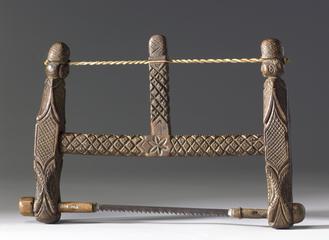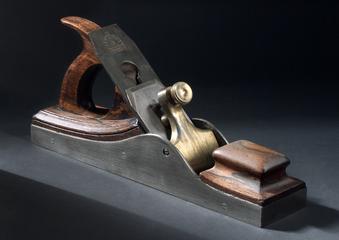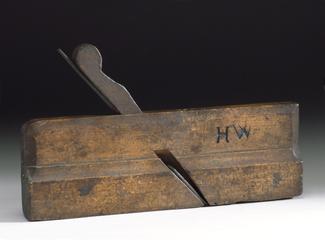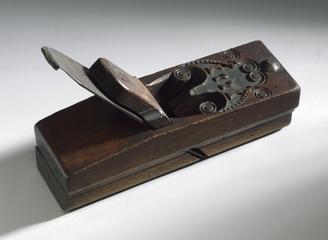
Early watchmaker's lathe or fusee engine
- Made:
- 1701-1800












Early watchmaker's lathe or fusee engine, 18th century
This is a small screw-cutting lathe which was designed for cutting fusees. A fusee is a tapering drum of hyperbolic section with a screw-like groove cut on it, on which is wound a cord connecting the main spring of a clock or watch with the driven mechanism. ltwas formerly used for maintai ning a copstant driving torque as the spring unwinds.
The fusee blank is held in a chuck which is rotated by turning the handle. The shaft is threaded and carries a nut, which is attached to a perforated lever, which is pivoted at a corner of the frame. The cutting-tool holder is attached to another perforated lever pivoted at the opposite corner. A rod links the two levers so that the motion of the nut on the lead-screw is transferred to the tool, which thus cuts a thread on the blank. The pitch of the screw cut depends on the position of the link-rod, which may be altered by moving the pegs.
This type of fusee engine was described and illustrated by Antoine Thiout in Traité de l'horlogerie, 1741, who attributed it to Regnault of Chalons.
Details
- Category:
- Hand and Machine Tools
- Object Number:
- 1946-167
- Materials:
- metal (unknown)
- Measurements:
-
overall (as displayed, incl. mount): 217 mm x 249 mm x 66 mm, 1.148 kg
- type:
- lathes
- credit:
- Hildburgh Collection




